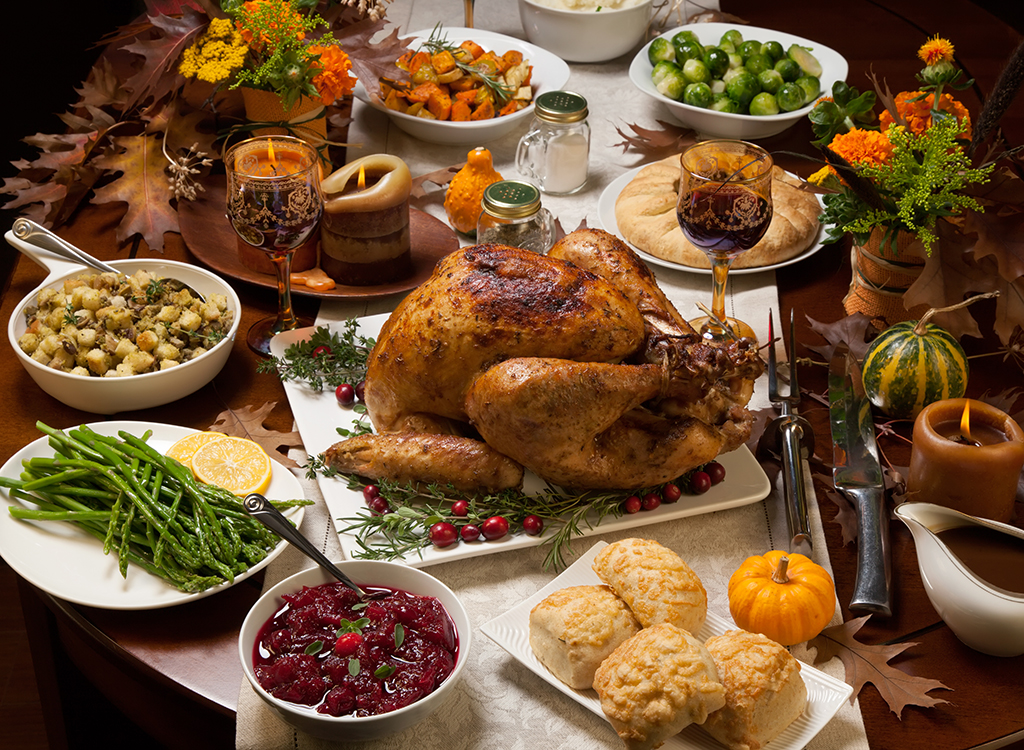America's #1 Thanksgiving Item Is Facing an Additional Price Increase, Experts Say

Just when we can finally safely gather with friends and family to stuff ourselves silly with all forms of comfort foods, our Thanksgiving plans are now facing a different issue—sky-high price tags.
And when it comes to the price of this year's turkey, we can blame the bird flu. A rare outbreak of the poultry disease may raise prices of the Thanksgiving staple even more than expected, according to Food Dive.
After two months with no cases, the bird flu has reared its ugly head again, with ten outbreaks registered since July 14 affecting more than 600,000 birds, according to the U.S. Department of Agriculture. This is despite the fact that bird flu doesn't typically spread during hot weather.
Still, the avian flu has tackled heat wave after heat wave, and managed to kill about 5.4 million turkeys between January to July—which is about 2.5% of all turkeys slaughtered for consumption last year, Food Dive reports.
"Jennie-O Turkey Store has been preparing for this situation and took extensive precautions to protect the health of the turkeys in its supply chain," the company says in a statement confirming that the bird flu was found in its supply chain in one Minnesota operation.
The bird flu was first detected in Indiana in February, and has spread across 24 states, according to Iowa State University researchers.
So, how does this affect Thanksgiving? In an earnings call, Hormel Foods, which is one of the biggest turkey processors in the United States, expects its supply to be constrained throughout the first quarter of fiscal year 2023. That means volumes in the fourth quarter, aka the Thanksgiving Day quarter, will be down by 20%, according to CFO Jacinth Smiley.
"Lower industry-wide turkey supplies are expected to keep prices higher near term," Smiley noted in the earnings call.









